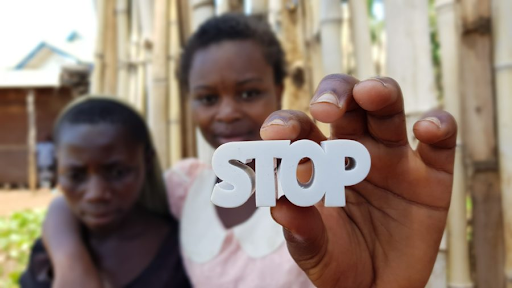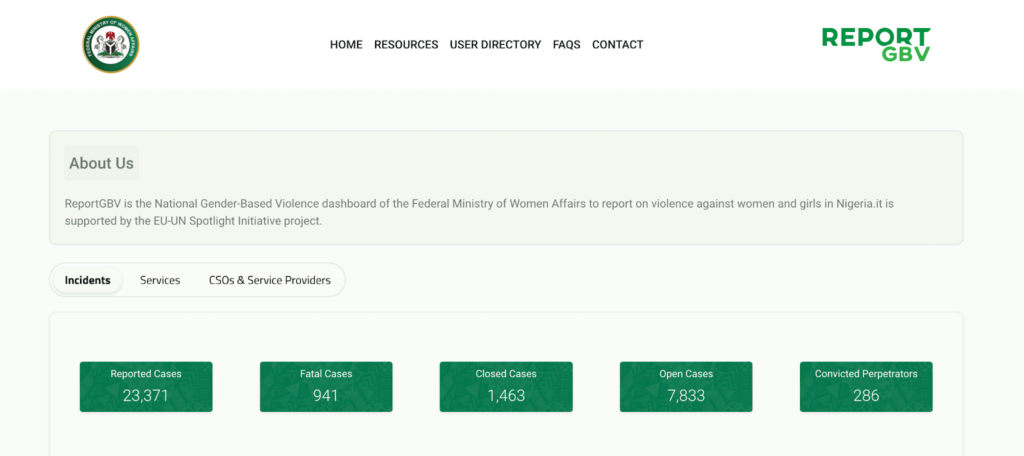The Killaboi Case And What The Nigeria Police Can Do To Better Curb Femicide
Despite the outrage on social media and the voluntary confession of femicide by a suspect who is now on the run, the Nigeria Police have yet to make significant progress on the much-publicised case.

In July, for about a full week, the social media space in Nigeria was abuzz with outrage over the murder of yet another woman.
The victim this time was 21-year-old Augusta Osedion and she was murdered by her boyfriend, Benjamin Best, who had himself confessed to the crime in a series of posts made on his Instagram story.
“I mistakenly stabbed her and ran away out of fear,” one of Best’s numerous posts read in part.
“I want to do the right thing and turn myself in,” he continued.
But Best did not turn himself in. Instead, he made more posts and sought sympathy for the crime he committed. His posts, which many termed “audacious”, raised a lot of dust, debates on the rate of femicide in Nigeria, and questions on social media, with a vast majority calling for his arrest.
More than a month later, Best is still at large.
“It sends a message that the Nigerian government does not really prioritise the lives of women,” feminist writer and gender rights activist, Emitomo Nimisire says to HumAngle, in reaction to the failure of the Police to apprehend the confessed murderer.
The Nigeria Police on the one hand have neither addressed the press nor put out an official statement condemning the crime or stating what it is doing to ensure the suspect is brought to book, despite the widespread publicity and heinousness of the crime.
Their comments to BBC Pidgin about transferring “the case to the State Criminal Investigation SCID) at Panti for a confidential investigation” is all that has been heard from them about the case.
HumAngle has repeatedly reached out to the Police to know if the case has been taken on at all. We reached out to Olumuyiwa Adejobi (spokesperson of the Nigeria Police) and Benjamin Hundeyin (spokesperson of the Lagos Police, where the crime took place) via text messages, calls, WhatsApp, and Twitter. We did not receive any response.
No trace of the case can be found on the verified social media pages of both spokespersons either.
A problem of nomenclature or a case of laxity?

A guide to the reportage of femicide by the Global Investigative Journalism Network (GIJN) suggests that the failure of some countries to appropriately identify femicide by its name makes it challenging to report the crime.
“Some countries won’t use the word femicide,” the guide says in part, urging journalists to instead “look for the standardised term according to the International Classification Of Crime for Statistical Purposes (ICCSS classification): “Female victims of homicide perpetrated by intimate partners and family members.”
When asked if this reporting challenge might be creating a false impression that femicide is not prevalent enough in Nigeria to warrant stringent measures, Nimisire agrees that while this may affect reportage of the crime in Nigeria, it has no effect on the casual manner in which it is regarded in the country.
“Gender-Based Violence (GBV) has always included femicide as one of its forms and we have always talked about GBV being a persistent issue in this country so I do not think the nomenclature issue is a contributing factor to the prevalence,” she said, emphasising that the government and responsible institutions “does not take the issue of GBV as seriously as they should.”
The Feminist writer and reproductive health and rights consultant also points out that the attitude of the Police operatives (who happen to be first responders as well) poses a bigger threat to the elimination of GBV-related crimes than naming it could ever cause.
“A Police who think that women deserve to be raped will probably also think that women deserve to be killed by their partners. The Police force is always trying to justify violence against women instead of protecting them and ensuring they get justice when violated,” she said, adding that the tendency of Police operatives to be gender-biased also “clouds” how they respond to GBV-related crimes.
Nimisire’s position is not an assumption, but a position that has been taken by several gender rights organisations.
In 2019 for instance, Dorothy Njemanze, Director of the Dorothy Njamanze Foundation (Non-profit organisation) raised the alarm on the conduct of the Nigeria Police on the matter.
“A state of emergency needs to be declared on how the Nigerian Police responds to sexual and gender-based violence,” she was quoted as saying.
Amnesty International made a similar observation in its 2021 report highlighting the challenges women and girls face in accessing justice for SGBV.
“In the process of reporting rape, survivors often face barriers such as stigmatisation, rape myths, gender stereotypes, unprofessional conduct by law enforcement agents, and the lack of survivor-friendly police stations, etc.,” the report read.
This unsatisfactory conduct by the Nigeria Police has also led some Non-Governmental Organisations (NGOs) and government organisations alike to hold trainings aimed at reorienting their approach to SGBV cases.
But the story is yet to change.
Closed cases are all the solutions we need

Like other forms of gender-based violence, femicide is underreported with only a few cases making it to the news.
Some of those cases lead to the arrest and sometimes prosecution of perpetrators.
The much-publicised case of 22-year-old Uwa Omozuwa who was raped and killed in a church in Edo State, for instance, generated an online advocacy tagged #JusticeforUwa and #Wearetired.
The advocacy was so impactful it got the attention of the then-President of Nigeria, Muhammadu Buhari, who directed involved stakeholders to ensure justice is served.
But justice was never served. In fact, the most recent news report on the matter was published in 2021. In the report, the sister of the victim said they (the family) are still waiting for justice to be served.
“There has really been nothing,” she said, referring to justice. “The first time my family went to court, there was not much deliberation and the case was adjourned. Then on March 29 was another court day but the sitting was adjourned again because only one of the suspects was present. Nothing really, it’s just about going to the court and they’re always adjourning,” she said.
Emitomo Nimisire tells HumAngle that successfully putting perpetrators of femicide and other GBV-related crimes behind bars will go a long way in deterring others from committing similar crimes.
Other gender-related NGOs think so as well.
But for closed cases to be achieved, Nimisire thinks that the Police which is the primary agency charged with handling crimes “take reports seriously.”
She also thinks that an effective way to curb femicide and other GBV crimes is for the Police to be accountable to the Nigerian people.
“At the end of each year, we want to see what they have done with respect to violence against women,” she says.
“Let them [the Police] show us the number of reports that they got, the number of arrests that they made, and the number of closed cases they have achieved. I think holding the Nigerian government accountable is too vague. Let’s actually hold the Police accountable.”
Nigeria’s Ministry of Women Affairs maintains a dashboard containing some of the elements mentioned above and like Nimisire and other activists and NGOs have pointed out over time, the number of closed cases is nothing compared to reported cases and this does not send the needed message about how authorities regard violence against women.
Presently, the number of reported cases of GBV in the dashboard stands at 23,371 while the number of closed cases stands at 1,463.
In addition to the issue of hardly closed cases, there exists a general data problem that affects how various issues are handled in Nigeria; Nimisire tells HumAngle that sifting and differentiating gender-related deaths from general homicides and maintaining a dashboard for it will also shape the urgency with which the problem of femicide is treated in Nigeria.
Experts also agree that femicide figures should be separately counted and separately stored.
“Some common problems with data are: femicides aren’t recorded separately,” GIJN says, pointing out that lack of reporting, underreporting, manual reporting, and mishandling of records, are some of the issues marring the data on femicide worldwide.
Support Our Journalism
There are millions of ordinary people affected by conflict in Africa whose stories are missing in the mainstream media. HumAngle is determined to tell those challenging and under-reported stories, hoping that the people impacted by these conflicts will find the safety and security they deserve.
To ensure that we continue to provide public service coverage, we have a small favour to ask you. We want you to be part of our journalistic endeavour by contributing a token to us.
Your donation will further promote a robust, free, and independent media.
Donate HereStay Closer To The Stories That Matter




